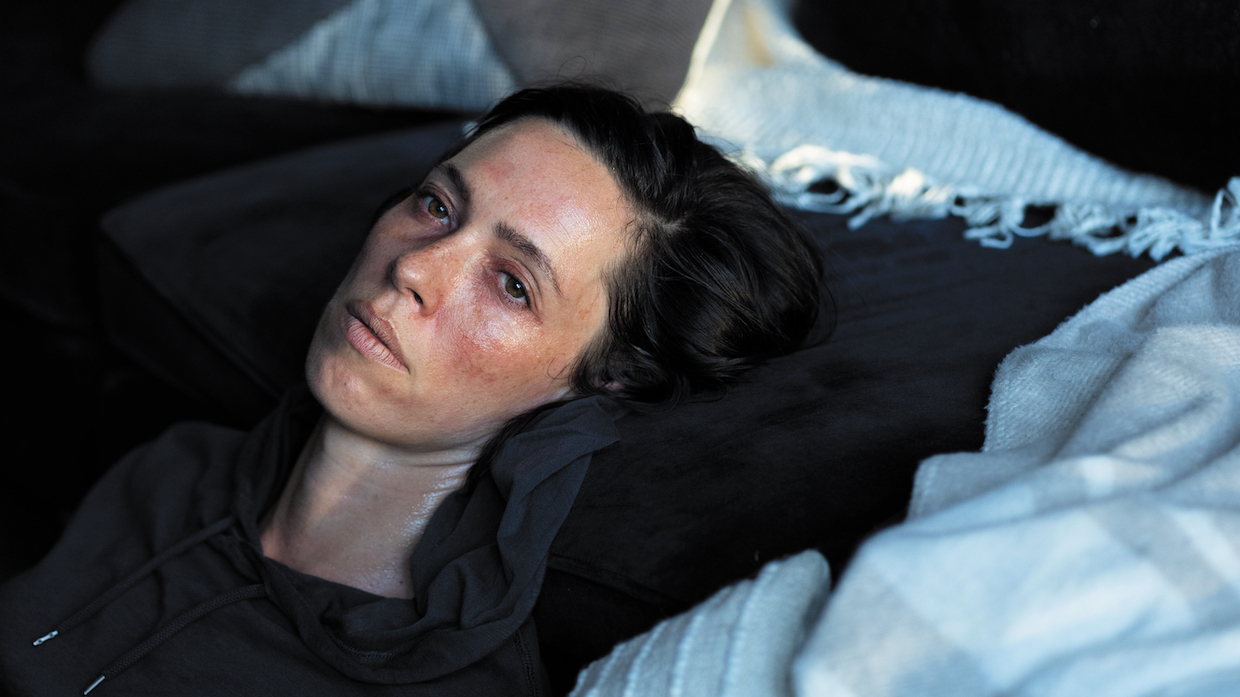Decades ago I worked behind the scenes in the “personal development” industry with best selling self-help authors and motivational speakers, household names in both the business achievement and new age realms (at least two of whom remain foremost luminaries). According to all, the primary route to contentment was nearly always “what doesn’t kill you makes you stronger,” or “no pain, no gain,” or “if you feel like you’re having a breakdown you may be having a breakthrough!” One guru would “heal” people during marathon hotel ballroom seminars where an audience “volunteer” would describe an often-traumatizing formative event—only to leap from knees to feet in mere minutes, claiming to have purged lifelong demons, or at least baggage. Cue applause.
The notion that the spoils of trauma, including sadness, anxiety and neuroses, may have a purpose—to live through, to feel, to process, to know “the lows,” to hopefully come out the other side—was categorically rejected in favor of quick, feel better fixes: “Change your physiology and change your life!” “Take control and move on!” “Write those negative thoughts on a blackboard and then…erase them!” My favorite: “Control what you think about.” Wish to immediately release whatever past you’ve been through and arrive in a state of exaltation? It is apparently as easy as 1-2-3.
I was reminded of such notions of pop personal empowerment during the harrowing new picture Resurrection (IFC; theatrical Friday and streaming August 5), a frightening study of a (possible) mental breakdown told as a psychological thriller, in which a galvanic Rebecca Hall burns through the screen, descending into an emotional rabbit hole so darkly absorbing that you can’t look away. As a seemingly accomplished executive and single mother with an orderly, compartmentalized life, she’s haunted by the reemergence of a decades-buried trauma, triggering a psychological break and reckoning with her own past guilt, shame and victimhood.
Writer/director Andew Semans introduces us to Hall’s Margaret, a by all accounts successful bioscience notable who furiously runs (not jogs) at a breakneck pace across an unnamed city (the picture was shot in Albany) in a workout obviously designed to burn more than calories. She is similarly intense at the office, both in delivering cutting edge presentations with calculated confidence and in matter-of-factly counseling an emotional young intern (Angela Carbone) on extrication from a manipulative boyfriend.
At home, Margaret is a doting single mother to seventeen-year-old Abbie (a whip smart Grace Kaufman), about to leave for university. A hip, cool mom who works to maintain a real relationship with her daughter, Margaret is nonetheless feeling prematurely empty nested. She also carries on a transactional, sexual fling with a married colleague (Michael Esper).
This carefully curated existence is threatened by the arrival of an unwelcome past by the name of David (Tim Roth), Margaret’s first live-in boyfriend, a master manipulator and abuser whom, Margaret claims, “Hurt me…poisoned my mind.”
Suddenly David begins to appear everywhere—a medical conference, a department store, a public park—and Margaret fears for her safety and that of her daughter. Why? The key to this mystery is eventually revealed in a powerful monologue so haunting in dialogue and delivery we understand Margaret’s terror in proximity to a monster, visible in the cold light of day.
Once Margaret directly confronts the phantom-like interloper, all hell breaks loose and her perfectly arranged life falls away as she struggles professionally and her relationship with Abbie deteriorates. But what is objective reality? Those around her assume Margaret to be losing her grip, but since the picture is told from her point of view, we wonder about the reliability of the narrator. Hall navigates these psychological nuances, showing us an external manifestation of the internal turmoil, with superb precision. The picture’s second half builds to a visceral, genuinely shocking and potentially absurd climax that somehow works thanks to Hall’s fierce commitment.
Like her masterful work In last year’s superb, grief-laden supernatural mystery The Night House, Hall has so much authority and direct emotionality that she again takes her film to a very special level (she did the same directing last year’s jewel Passing). At the conclusion of last night’s screening the audience (which applauded) was abuzz about “what was real” and “what really happened,” but pursuing such answers is reductive and less than the larger point of the film, which is about confronting deep psychological wounds that may never heal.
Resurrection is fascinating in what it has to say about motherhood, regret, different generations of women, relationships of manipulation and abuse, and how a person may go on from real life horror to create a different life, image, new persona, be outwardly successful but inwardly always able to teeter or fall backwards, quickly, to unhealed neuroses. It may be constructed as a thriller but in essence Resurrection is a study of the psychology of a victim and how she tries to triumph over her demons without the help of experts or care. Is she taking control…or falling apart? In one of the year’s great performances, Hall makes it all unnerving and richly oblique.
3 1/2 stars



